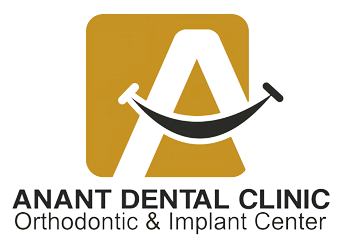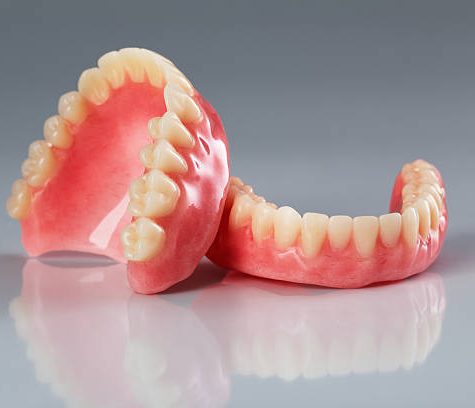Dentures are removable false teeth designed to replace missing teeth. There are 2 types of dentures i.e. complete dentures and removable partial dentures. Complete dentures are used by patients who do not have any teeth in a single arch (upper or maxillary / lower or mandibular arch).
Patients that have some missing teeth in an arch use removable partial dentures.
A complete denture may be ‘Conventional’ or ‘immediate’. A conventional denture is made after the teeth have been removed and the gum tissue has healed, usually taking 4-6 weeks. During this time, the patient will go without teeth. Immediate dentures are made in advance and immediately placed after the teeth are removed, thus preventing the patient from having to be without teeth during the healing process. Once the tissues shrink and heal, adjustments need to be made.
Removable Partial Dentures may be any one of these types:
- Traditional denture
- Traditional denture with a metal framework to make the denture strong, light and of course biocompatible
- Flexible or unbreakable denture
Due to availability of newer advances in dentistry, the denture can be fixed to the jaw bone by using dental implants.
Dentures are like removable replacements for missing teeth and surrounding tissues. They come in handy when natural teeth are lost due to decay, gum disease, or injury.
Here’s what you need to know about dentures:
Types: Dentures come in two main types: complete dentures, which replace all teeth in the upper or lower jaw, and partial dentures, which replace only a few missing teeth and attach to existing teeth with metal clasps.
Materials: Dentures are typically made of acrylic resin, though some may have metal frameworks for added support.
Fitting: Getting dentures involves several steps. First, your dentist will take impressions and measurements of your mouth to ensure a custom fit. Then, temporary dentures may be worn until the final ones are ready.
Care: Proper care of dentures is essential for their longevity and your oral health. This includes daily cleaning, soaking in denture solution, and regular check-ups with your dentist.
Adjustment: It may take some time to get used to wearing dentures, especially if they’re new. Your dentist can make adjustments to ensure they fit comfortably and function properly.
Dentures can significantly improve chewing ability, speech, and appearance for those with missing teeth. If you’re considering dentures, consult with a qualified dentist to explore your options and find the best solution for your smile.

